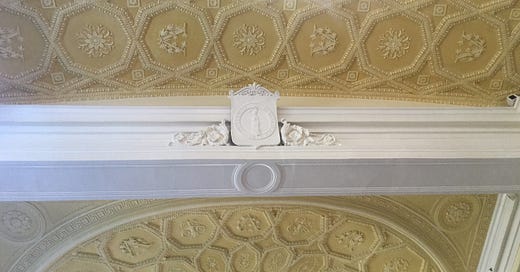It was the third time this week I’d found myself sub rosa, alone, and surrounded by ambitious young people in the Great Hall of Garrett Hall. At one point in the University’s history this was the dining room for the southern aristocracy; when I was here, the building housed Dean’s offices—including my undergraduate dean—twenty years ago. In 2007, while I was in Afghanistan and a year after I should’ve graduated, it became the home of the new Batten School of Public Policy.
I visited an old professor there in 2012—Fred Hitz, he’s retired fully now, but his seminar was very good in 2005. It was not an unfamiliar place, and yet it was. Freud called it Das Unheimliche.
Twice this week I’d sat smack in the middle of a two columns of four chairs abreast, that stretched on for eleven rows—a quick count; eighty-eight people could sit in this room to listen to the previous two briefings. Let me tell you what; it’s a nice building. This day I’d just finished observing a tabletop simulation exercise of the inter-agency blob responding to a coup in Mali to brief the President.
As I walked in to my final event—an hour or so late due to a scheduling conflict—the rows of chairs I’d grown used to over the week were gone, replaced by clusters of tables with students seated at each, puzzling over sheafs of paper with Model UN Style Talking Points. A briefing slide is displayed on a huge flatscreen television mounted to the wood-paneled walls. Some students are gathered in the middle of the room, in a mock “inter-agency” meeting.
The scenario is wrapping up, soon a mock student Briefer is informing the mock President.





